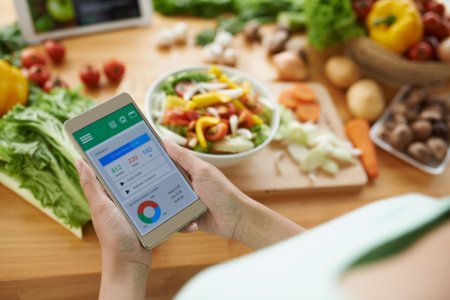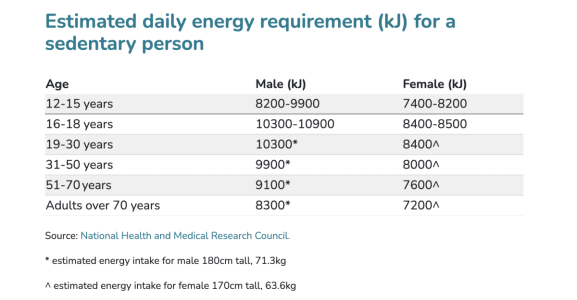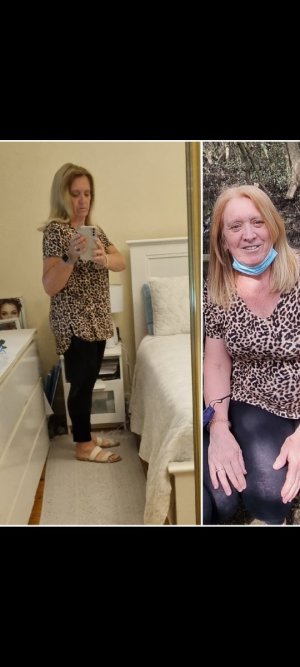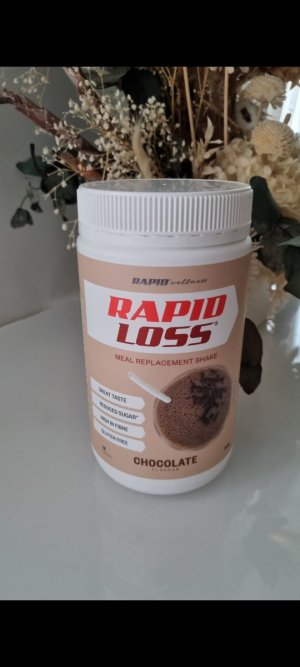Losing it: How a simple lifestyle change helped me shed 20kg
- Replies 24
Note from the Editor:
This article was kindly written for the SDC by member Alan G.
Please note: This article contains discussions of weight loss, diet and calories.
Most of us in Australia these days think we are ‘overweight’, and some of us certainly are! There are many advertisements assuring us that we can lose weight very easily using some quite expensive diet arrangements. Some people even consider lap-band surgery – not cheap either – and the evidence seems to indicate it’s not 100 per cent effective in the long term for everyone.
My wife and I decided to embark upon what we call a ‘Lifestyle Change’ a few years ago, and I thought it might be useful to share it with some of you who may not have thought it possible.
I suppose what started us off was the realisation that we had both gained a fair bit of weight – especially in my case since I’d retired and we’d sold our house in Gingin (WA) and moved to Queensland. I was up to 96 kg, and the pictures showed it. My stomach was hanging over my trouser belt – not a pretty sight. Quite by chance, we happened to mention it to our local doctor, and he said that we were eligible for free consultations for six months with a dietician if he referred us, as long as we had some particular medical problem that was associated with being overweight. Well, I reckoned the osteoarthritis in my knees was a weight problem, and Terry’s (my wife’s) hip was similar. As we get older, we realise that simply walking around or climbing and descending stairs tends to be an increasingly painful process for many of us – we tend to envy the youngsters and their boundless energy and remember a time when we took our mobility for granted.
I’d personally tried those Whey drinks for a while in place of food – they did no good at all – and regularly had a half-hour walk in the morning or evening. I found it very difficult to lose weight since I didn’t have easy access to a gym in Gingin, and the exercise bike I’d got ended up gathering dust. The motivation simply didn’t appear to be there.
On the first visit to the dietician in Queensland, the young lady advised us to keep a ‘Food Diary’ and to make a note of the calories or kilojoules we consumed for everything we ate. She gave us some pre-printed pages for us to photocopy (which I’ve more recently constructed on an Excel spreadsheet). Along the top of the sheet were the days of the week, and down the left side were rows labelled: ‘Breakfast’, ‘Snack’, ‘Lunch’, ‘Snack’, ‘Dinner’, ‘Supper’, and ‘Notes and Exercise’. There was also a row at the bottom of the page for totals of calories or kilojoules per day.
We decided from the outset to use only kilojoules because it seemed that most foods were labelled with ‘Energy’ in kilojoules. (There are 4.184 kilojoules in a ‘kilocalorie’. I don’t know why they call it a kilocalorie because that indicates 1000 calories. Anyway, to convert ‘calories’ to ‘kilojoules’, you simply multiply by about 4). She told each of us what our ‘target’ daily intake should be to lose weight. This was based on our age and height.
We started in November 2017. I weighed over 96kg in March of that year, and by January 2018, I was down to 85kg. Terry’s weight came down a fair bit slower, but we both kept at it. By February, I was down to 83 kg; by March, I weighed 81kg. I changed my target energy intake, and my weight dropped a lot more quickly with no detrimental effects. By June, I was down to 76 kg. I currently weigh around 73kg, 20kg, which I’m not carrying around anymore. My waistline has shrunk, of course. From size 107cm/42” (XXL) trousers less than a year ago, I’m now down to 87cm/34”.
Note from the Editor: Your intake needs will vary depending on your gender, age, current weight, activity level, as well as other medical considerations. There are apps out there that can help you roughly estimate your daily intake requirements, but this is best done with a medical professional who can support you in all aspects of your weight loss journey. As a starting point, you may like to use the QLD Government’s kilojoule calculator here.
It was relatively simple. We didn’t need to do any particular exercise – we make an effort to walk occasionally, mainly around large shopping centres, which aren’t far away here in Queensland, but if they were, a half-hour walk around the block every now and then would be OK.
Lorem ipsum dolor sit amet, consectetur adipiscing elit. Quisque in diam id erat facilisis consectetur vitae vel urna.
Ut lacus libero, suscipit auctor ipsum sit amet, viverra pretium nisl. Nullam facilisis nec odio nec dapibus. Integer maximus risus et velit porttitor ullamcorper
This article was kindly written for the SDC by member Alan G.
Please note: This article contains discussions of weight loss, diet and calories.
Most of us in Australia these days think we are ‘overweight’, and some of us certainly are! There are many advertisements assuring us that we can lose weight very easily using some quite expensive diet arrangements. Some people even consider lap-band surgery – not cheap either – and the evidence seems to indicate it’s not 100 per cent effective in the long term for everyone.
My wife and I decided to embark upon what we call a ‘Lifestyle Change’ a few years ago, and I thought it might be useful to share it with some of you who may not have thought it possible.
I suppose what started us off was the realisation that we had both gained a fair bit of weight – especially in my case since I’d retired and we’d sold our house in Gingin (WA) and moved to Queensland. I was up to 96 kg, and the pictures showed it. My stomach was hanging over my trouser belt – not a pretty sight. Quite by chance, we happened to mention it to our local doctor, and he said that we were eligible for free consultations for six months with a dietician if he referred us, as long as we had some particular medical problem that was associated with being overweight. Well, I reckoned the osteoarthritis in my knees was a weight problem, and Terry’s (my wife’s) hip was similar. As we get older, we realise that simply walking around or climbing and descending stairs tends to be an increasingly painful process for many of us – we tend to envy the youngsters and their boundless energy and remember a time when we took our mobility for granted.
I’d personally tried those Whey drinks for a while in place of food – they did no good at all – and regularly had a half-hour walk in the morning or evening. I found it very difficult to lose weight since I didn’t have easy access to a gym in Gingin, and the exercise bike I’d got ended up gathering dust. The motivation simply didn’t appear to be there.
On the first visit to the dietician in Queensland, the young lady advised us to keep a ‘Food Diary’ and to make a note of the calories or kilojoules we consumed for everything we ate. She gave us some pre-printed pages for us to photocopy (which I’ve more recently constructed on an Excel spreadsheet). Along the top of the sheet were the days of the week, and down the left side were rows labelled: ‘Breakfast’, ‘Snack’, ‘Lunch’, ‘Snack’, ‘Dinner’, ‘Supper’, and ‘Notes and Exercise’. There was also a row at the bottom of the page for totals of calories or kilojoules per day.
We decided from the outset to use only kilojoules because it seemed that most foods were labelled with ‘Energy’ in kilojoules. (There are 4.184 kilojoules in a ‘kilocalorie’. I don’t know why they call it a kilocalorie because that indicates 1000 calories. Anyway, to convert ‘calories’ to ‘kilojoules’, you simply multiply by about 4). She told each of us what our ‘target’ daily intake should be to lose weight. This was based on our age and height.
We started in November 2017. I weighed over 96kg in March of that year, and by January 2018, I was down to 85kg. Terry’s weight came down a fair bit slower, but we both kept at it. By February, I was down to 83 kg; by March, I weighed 81kg. I changed my target energy intake, and my weight dropped a lot more quickly with no detrimental effects. By June, I was down to 76 kg. I currently weigh around 73kg, 20kg, which I’m not carrying around anymore. My waistline has shrunk, of course. From size 107cm/42” (XXL) trousers less than a year ago, I’m now down to 87cm/34”.
Note from the Editor: Your intake needs will vary depending on your gender, age, current weight, activity level, as well as other medical considerations. There are apps out there that can help you roughly estimate your daily intake requirements, but this is best done with a medical professional who can support you in all aspects of your weight loss journey. As a starting point, you may like to use the QLD Government’s kilojoule calculator here.
It was relatively simple. We didn’t need to do any particular exercise – we make an effort to walk occasionally, mainly around large shopping centres, which aren’t far away here in Queensland, but if they were, a half-hour walk around the block every now and then would be OK.
Lorem ipsum dolor sit amet, consectetur adipiscing elit. Quisque in diam id erat facilisis consectetur vitae vel urna.
Ut lacus libero, suscipit auctor ipsum sit amet, viverra pretium nisl. Nullam facilisis nec odio nec dapibus. Integer maximus risus et velit porttitor ullamcorper
Read more for FREE!
Become a member today and join over 200,000 Australians already taking advantage of daily news, weather, petrol costs, games, jokes, deals and more.
-
FREE 400-page Discount eBook upon joining
-
FREE Aussie-made eBook & many more
-
Multiple daily discounts for members
-
No payment required
Register Faster Using
Or Register with email
Already a member?
Last edited by a moderator:
Sponsored
Seniors Discount Club
Sponsored content













